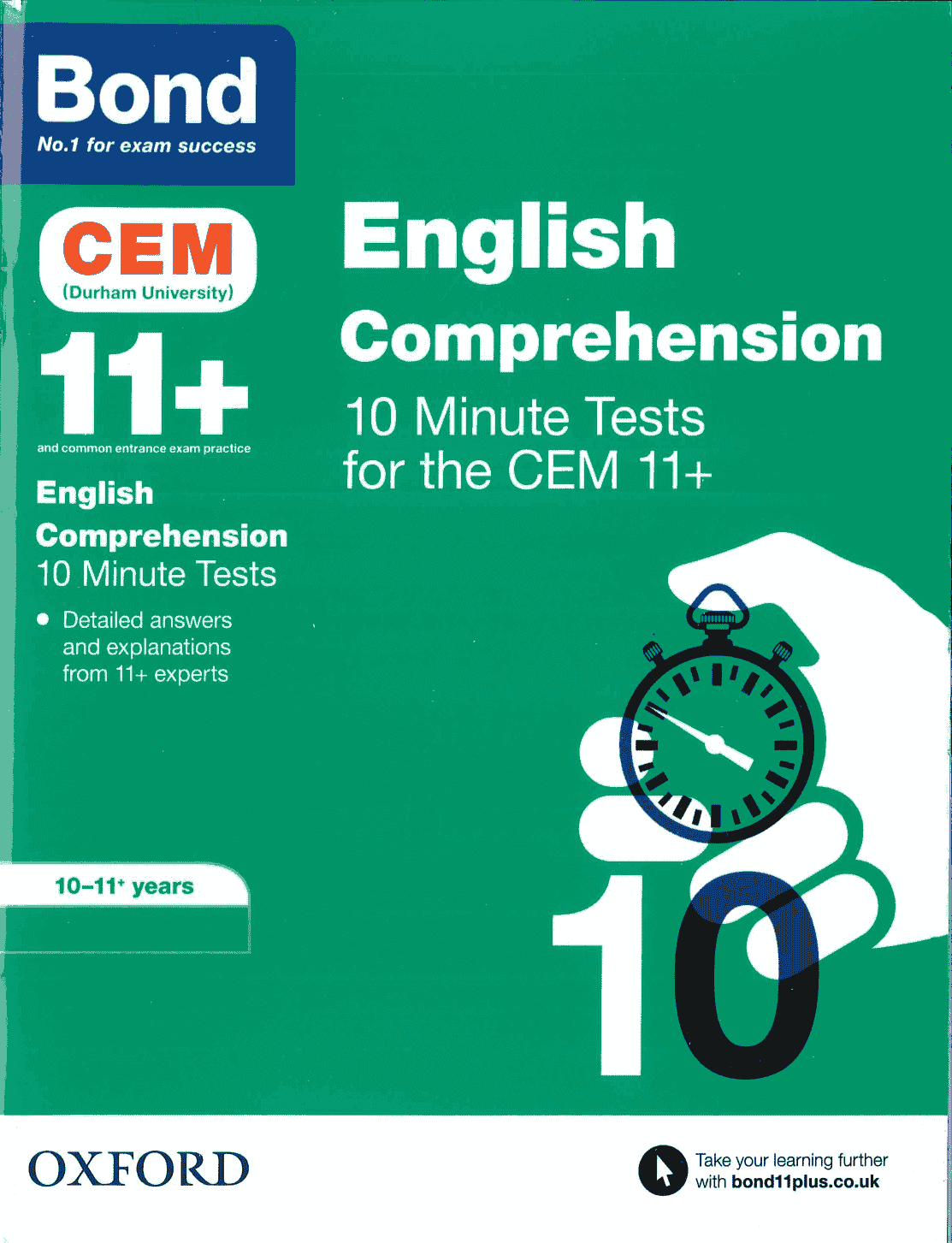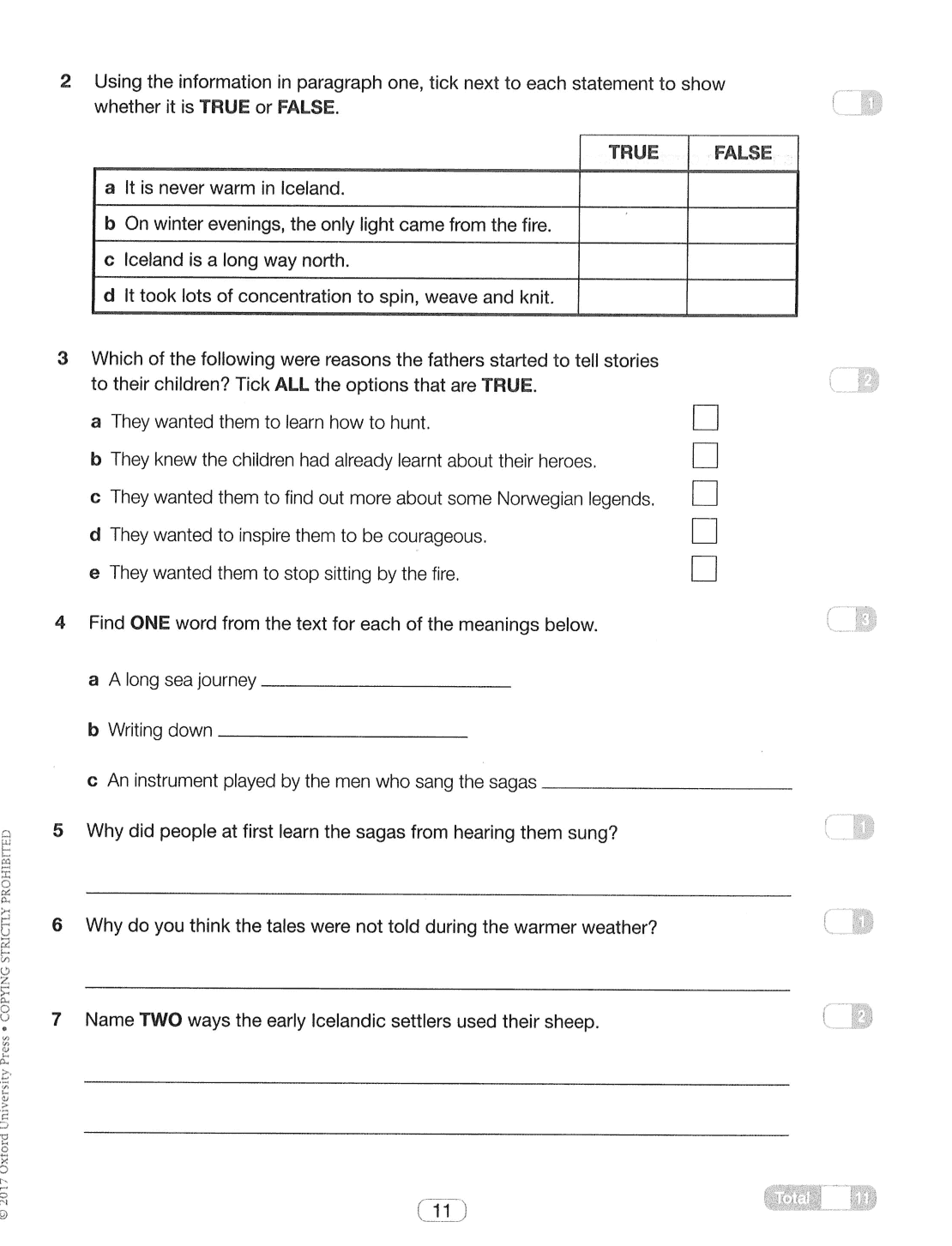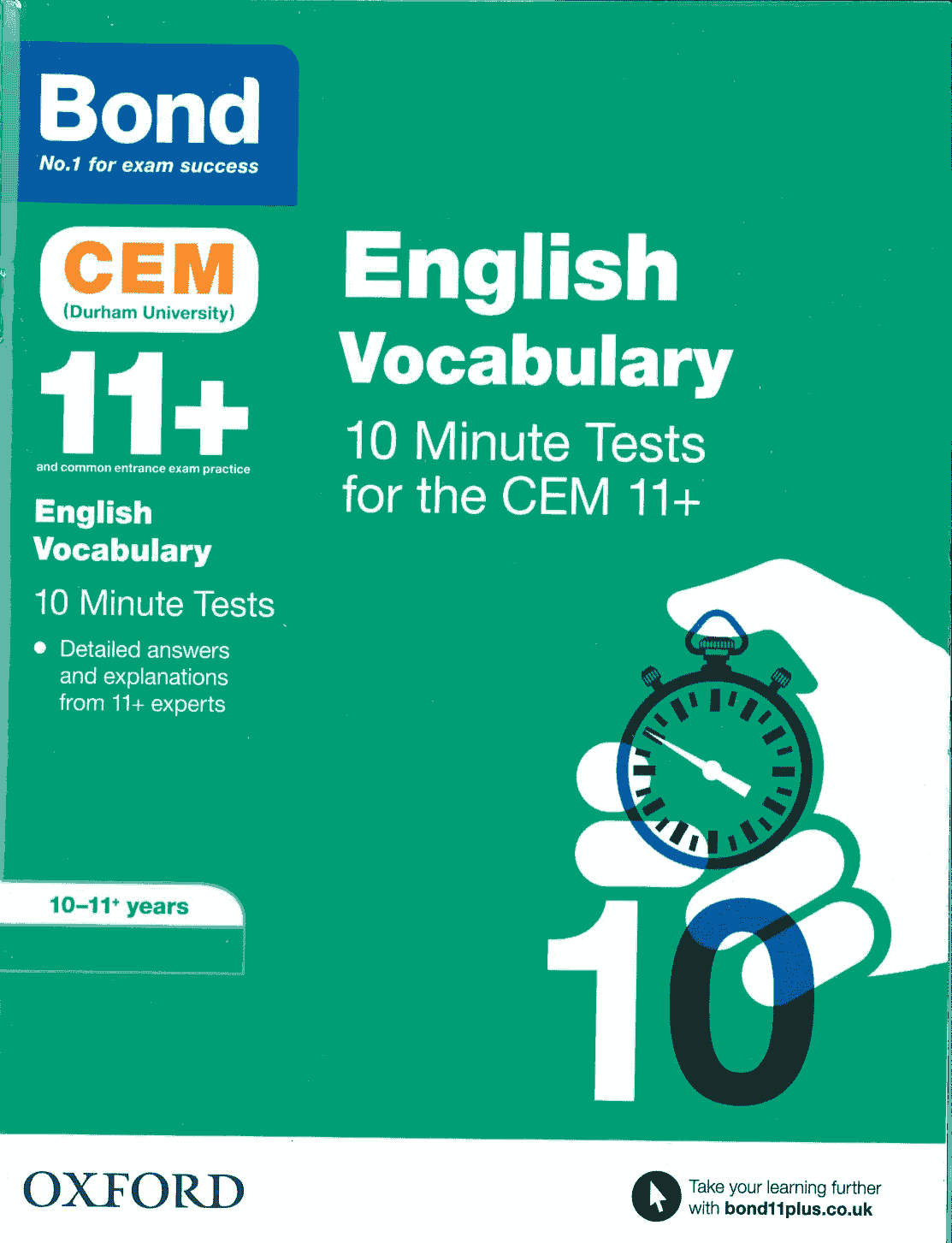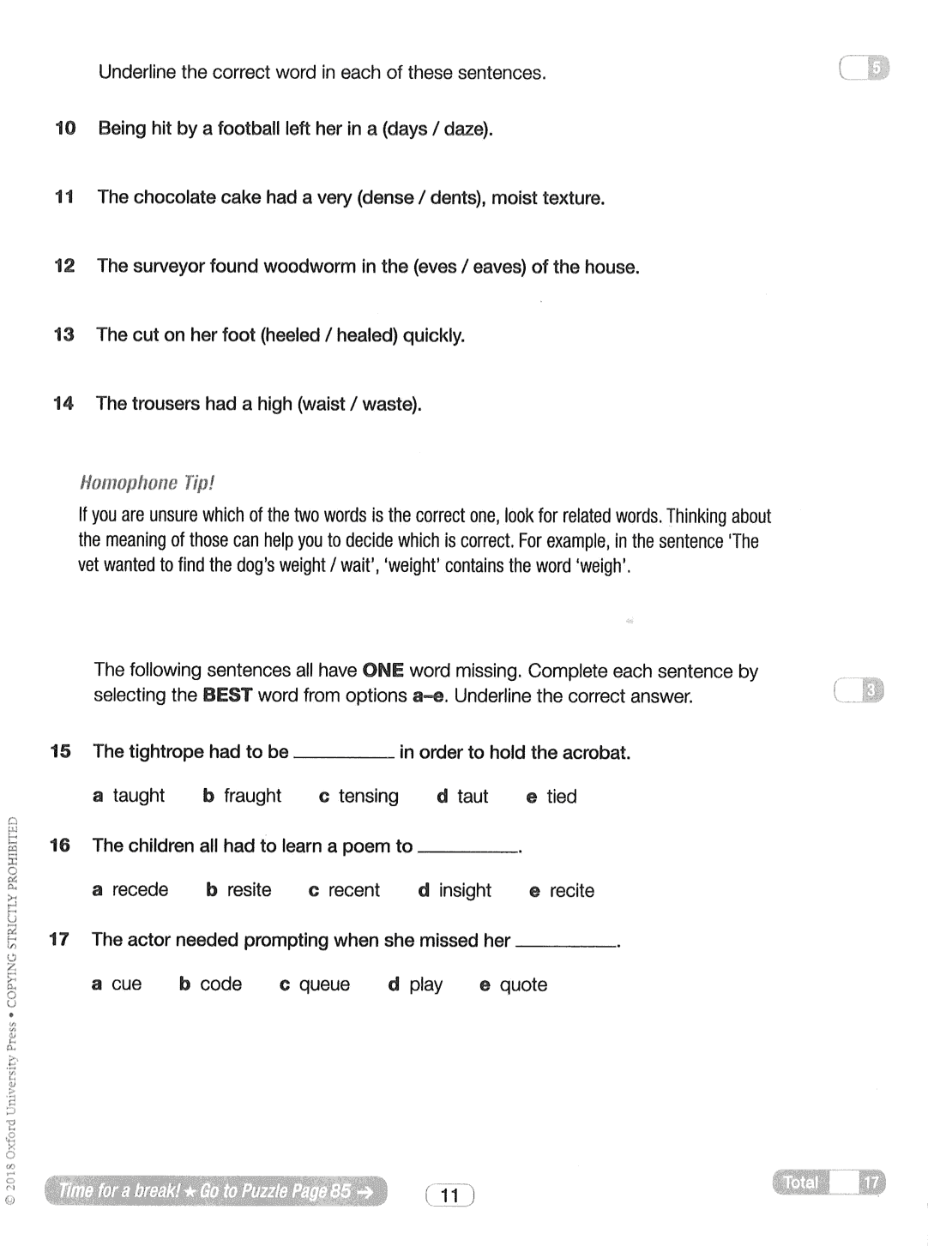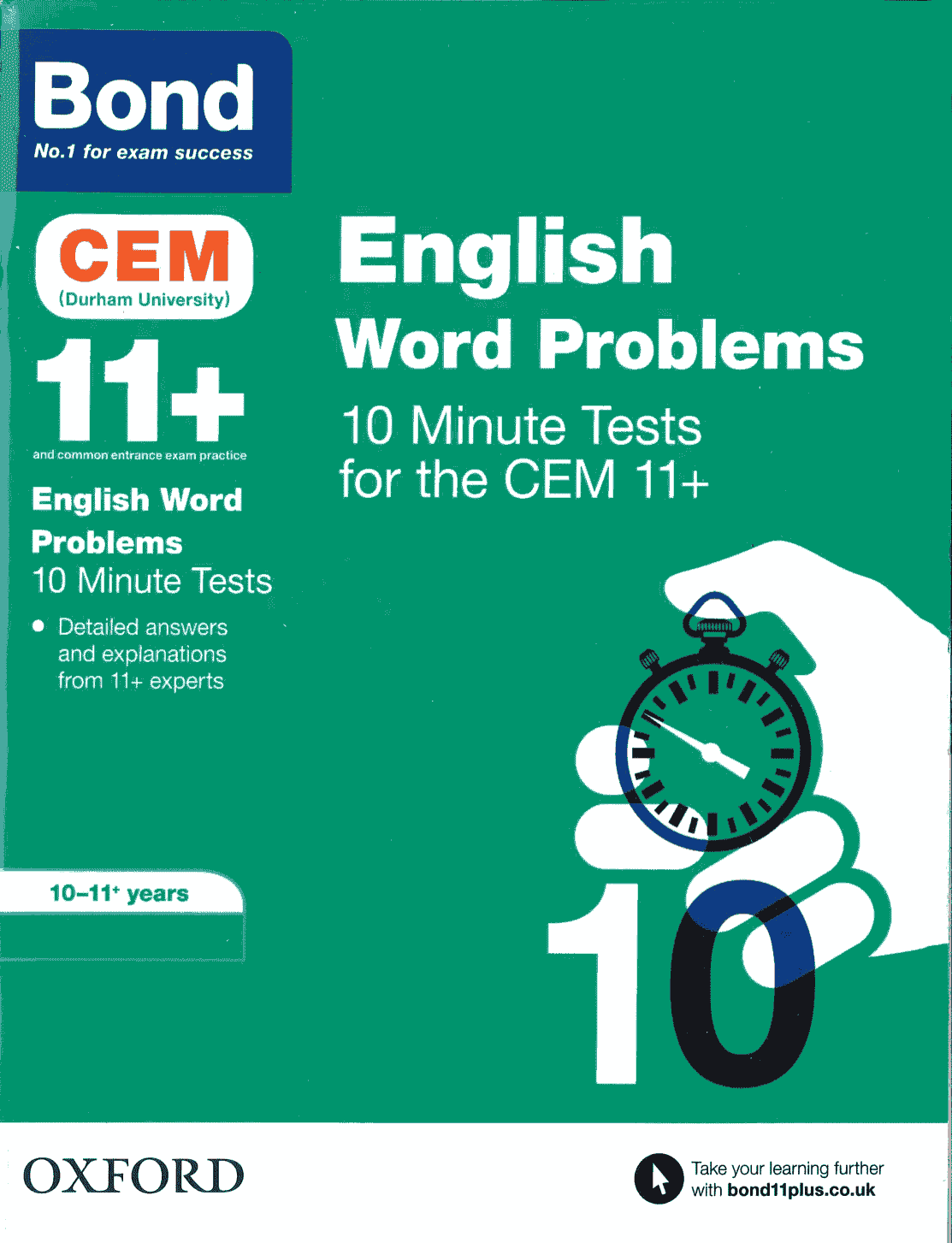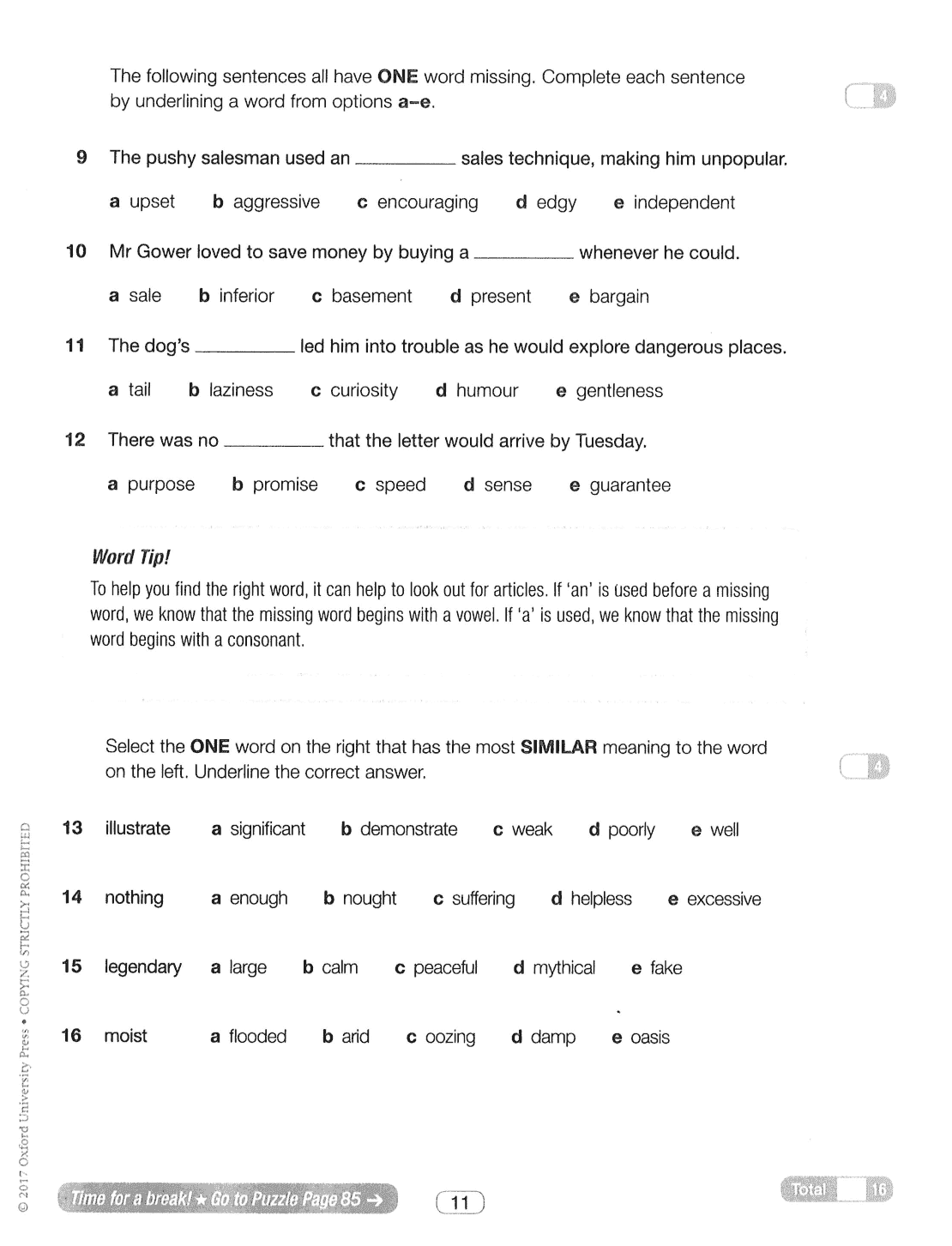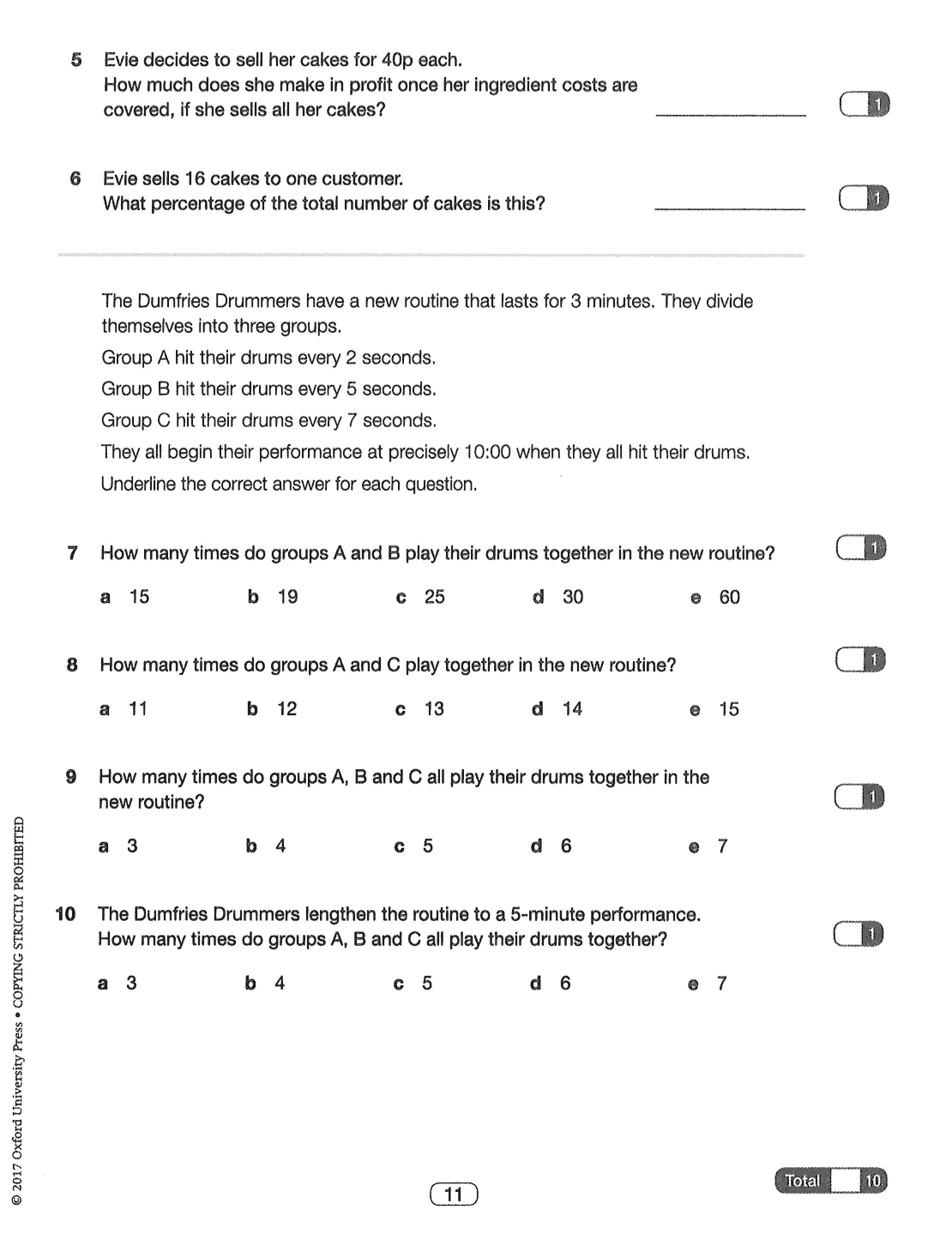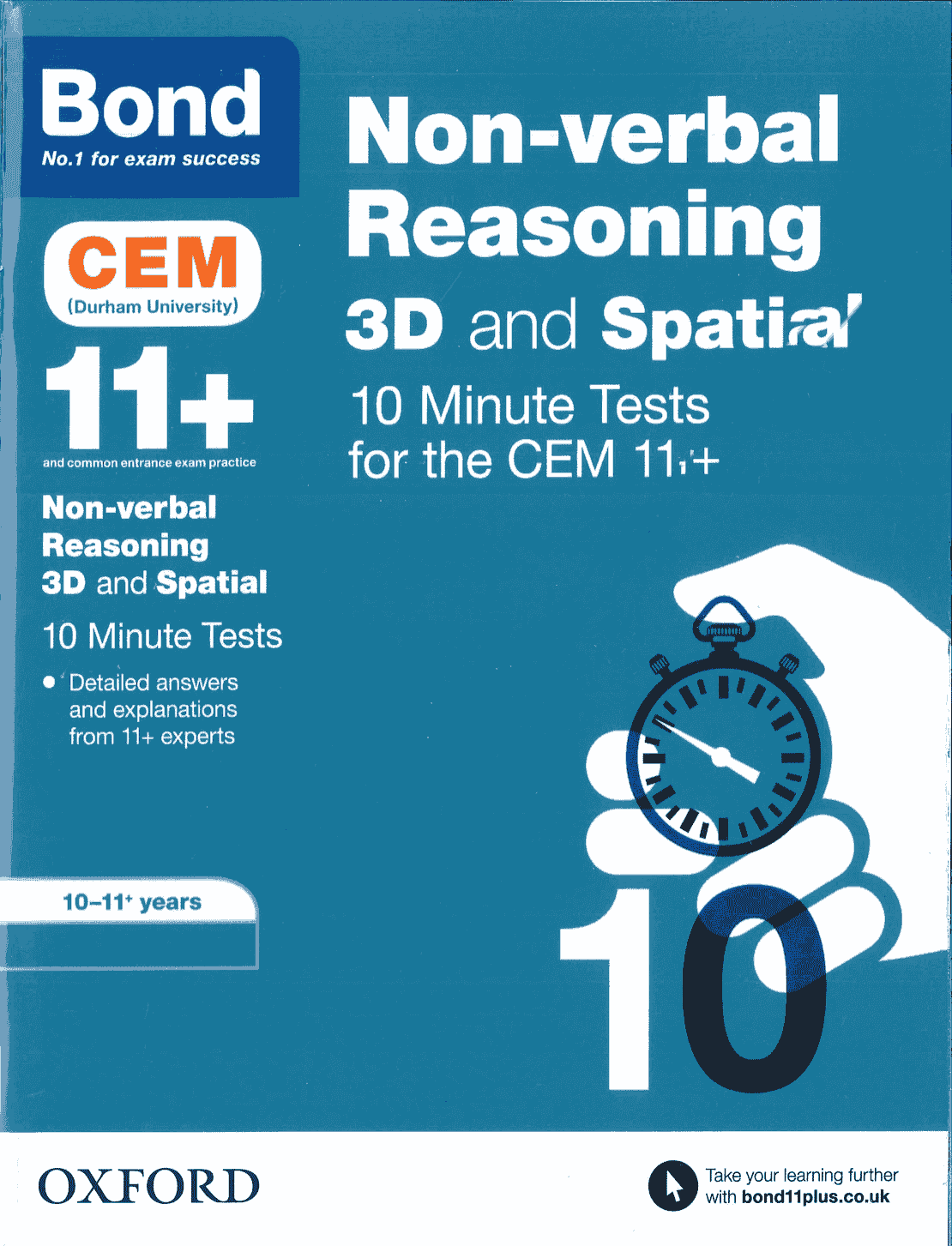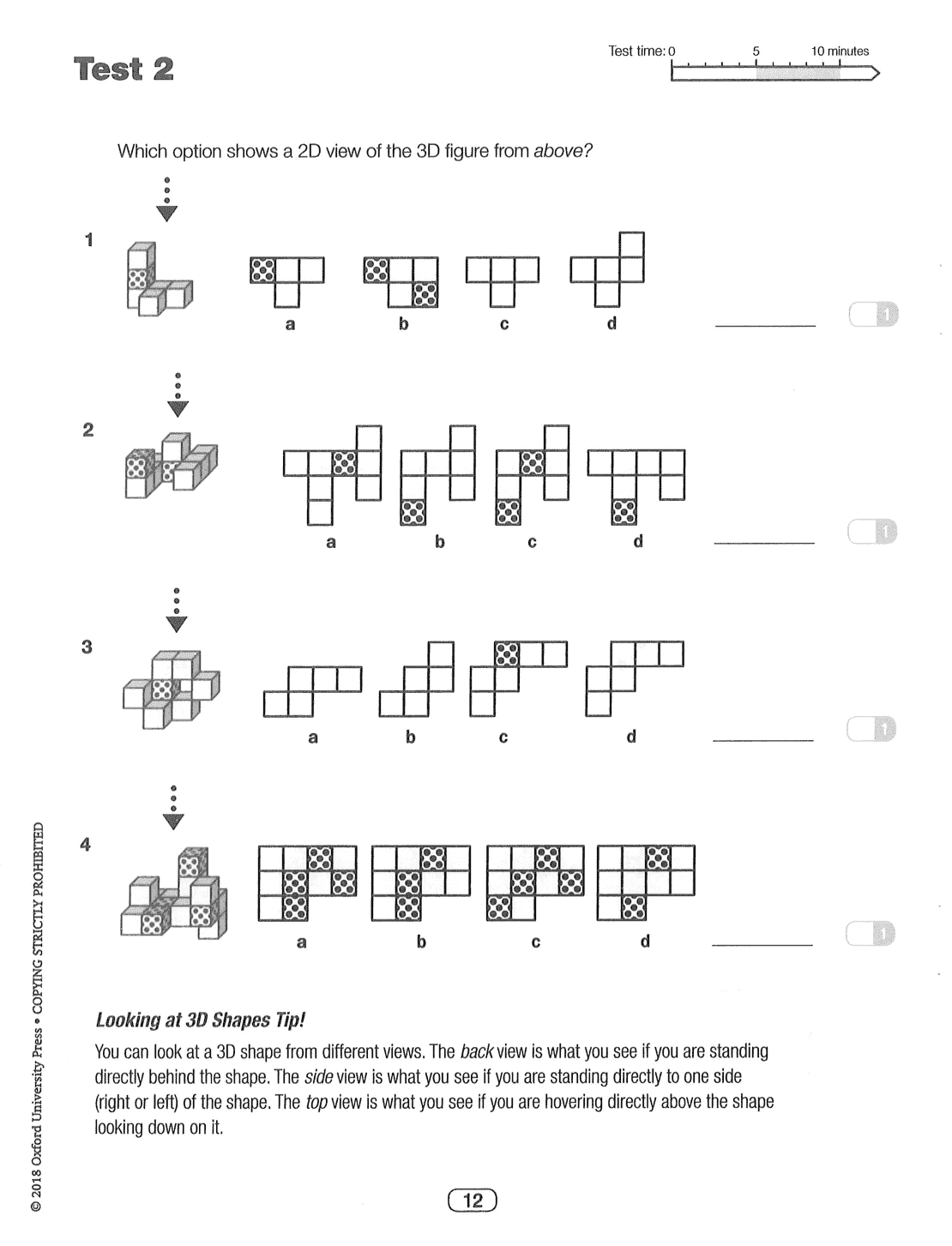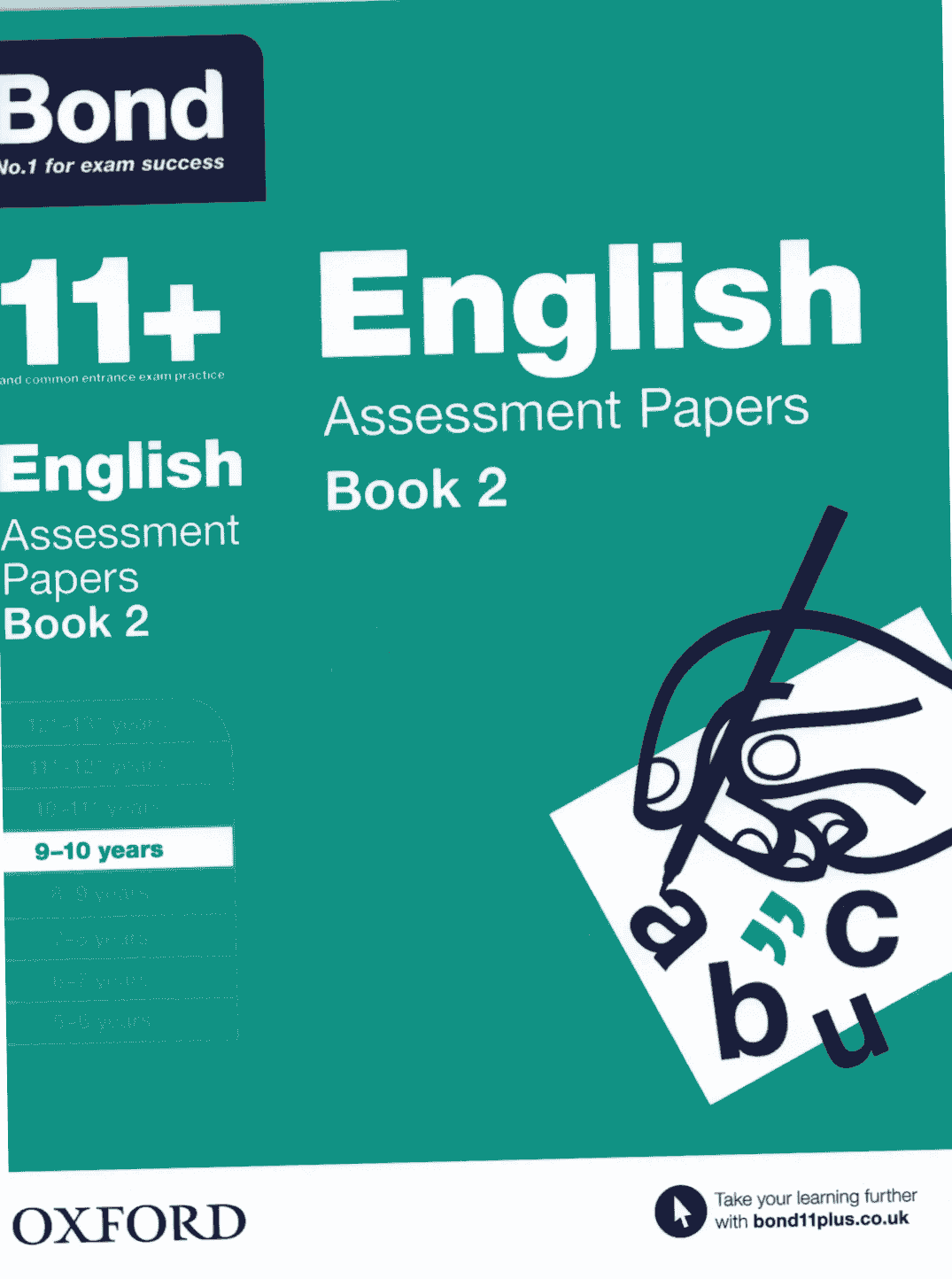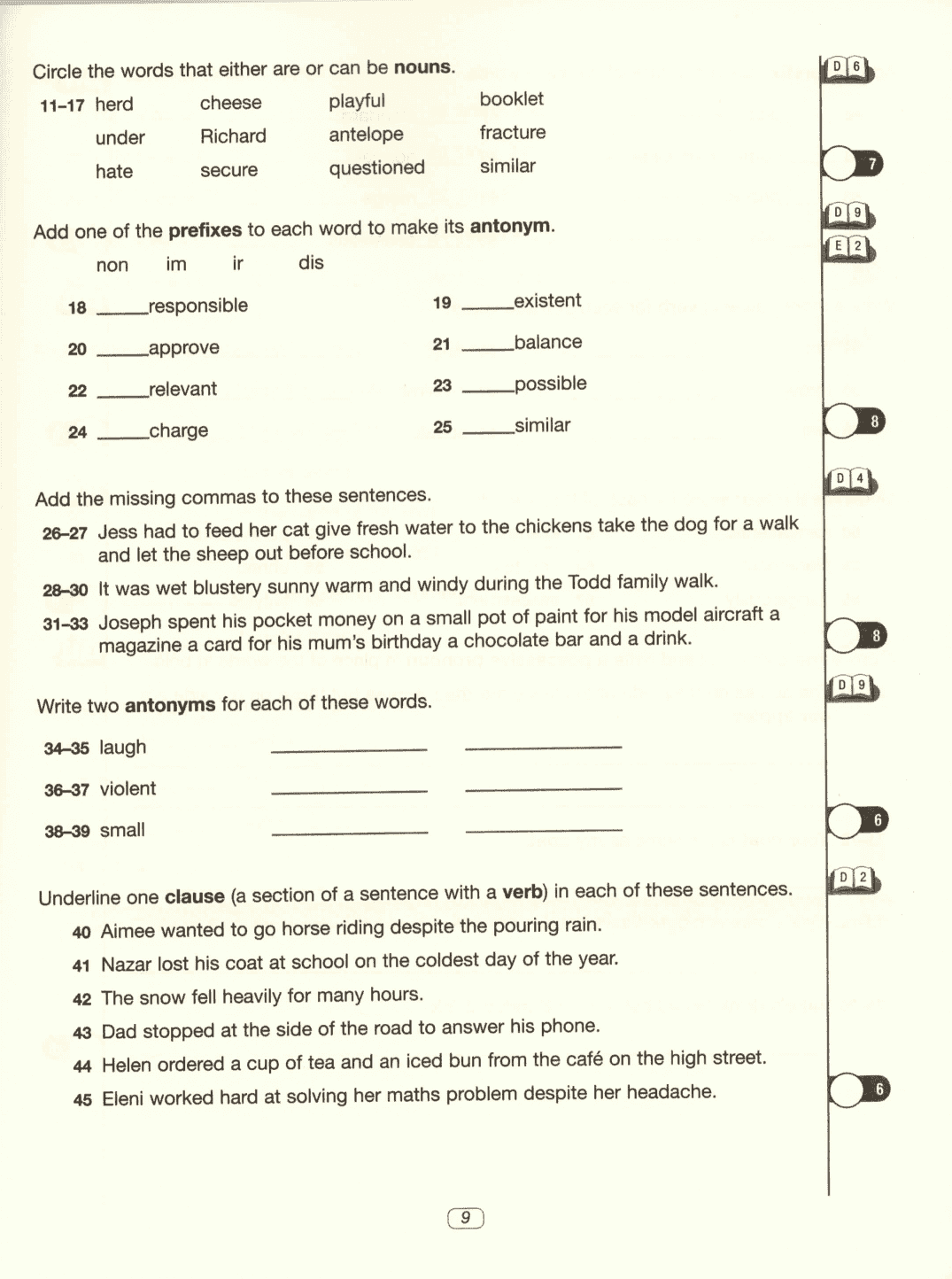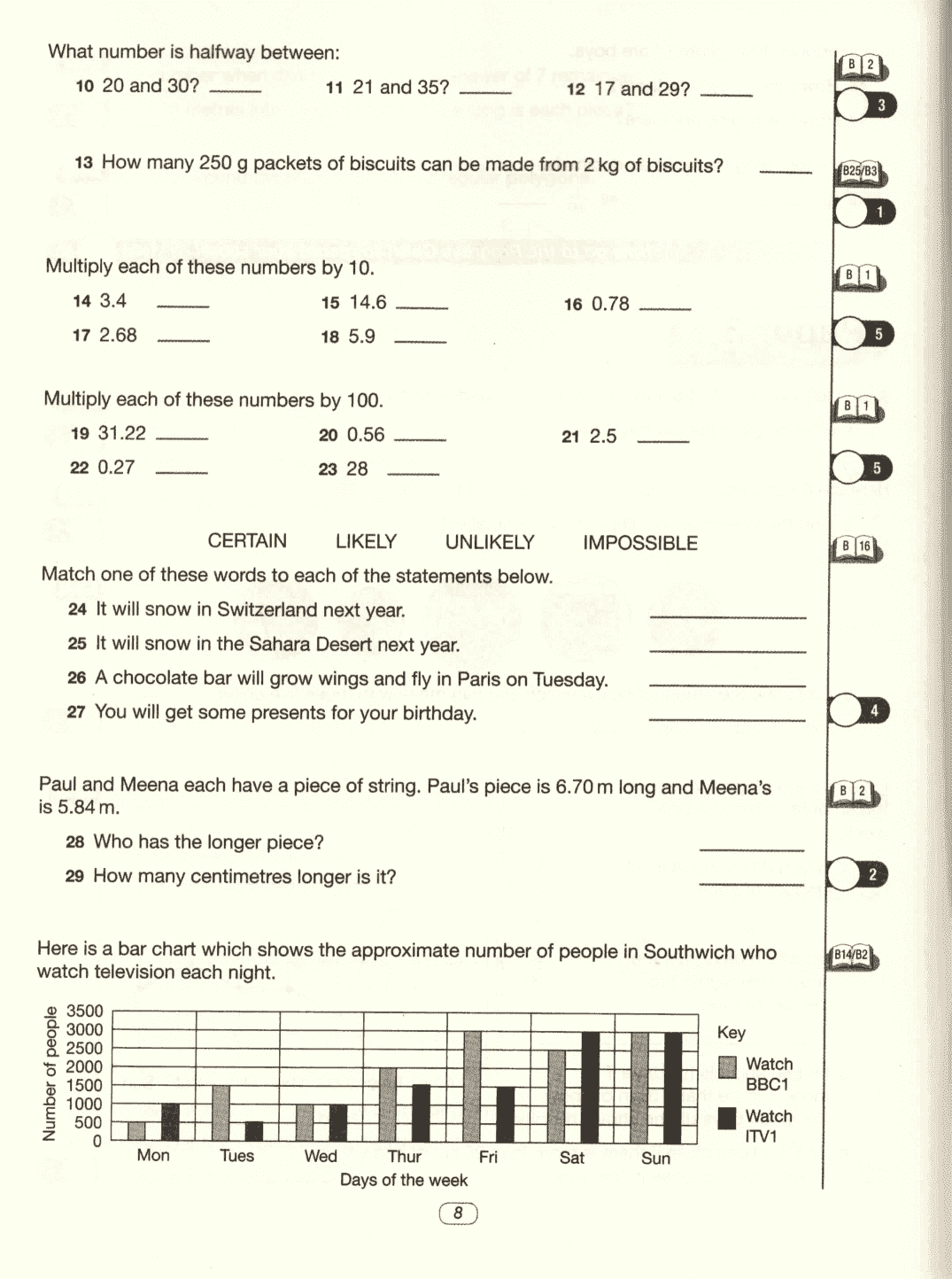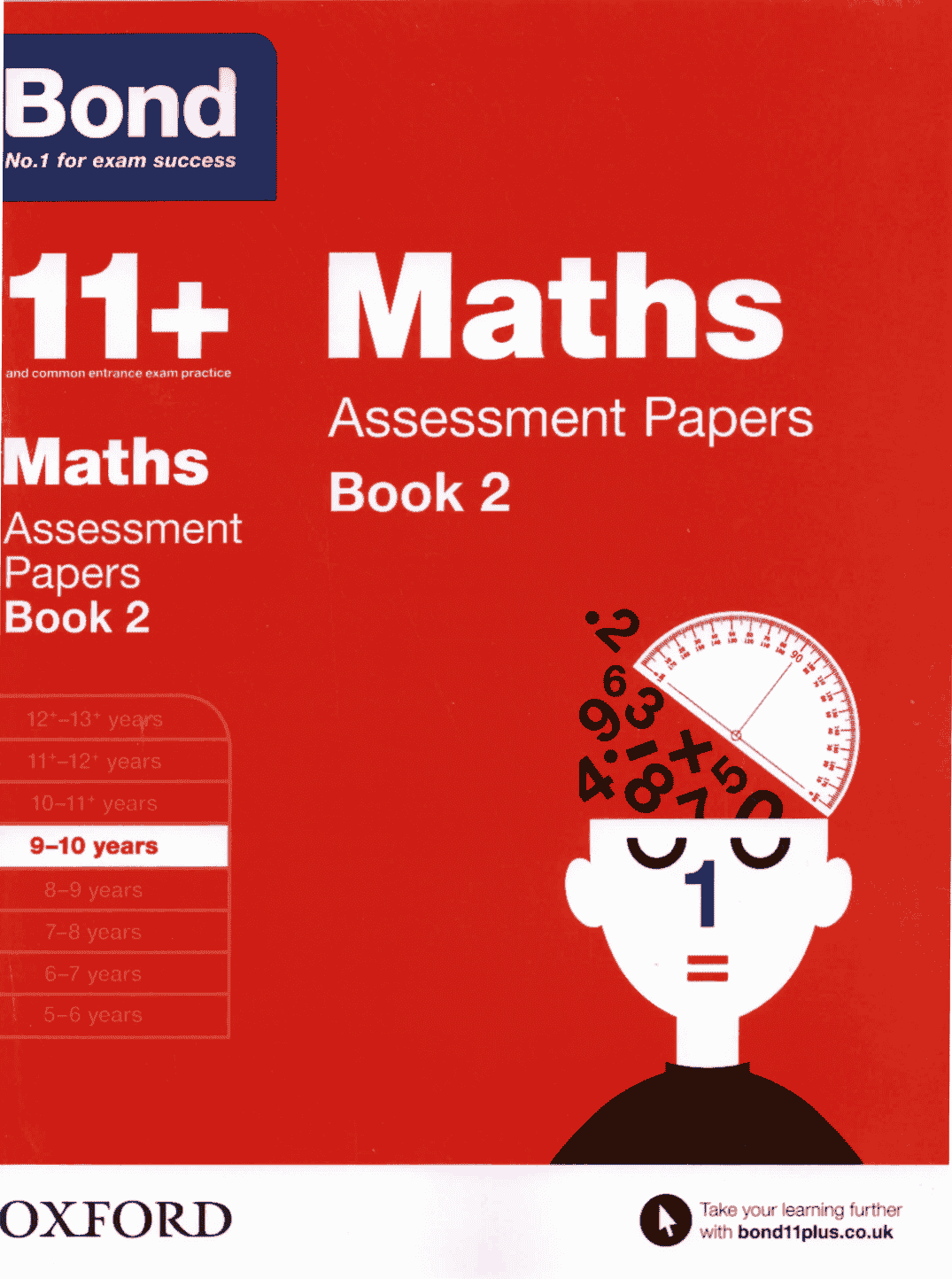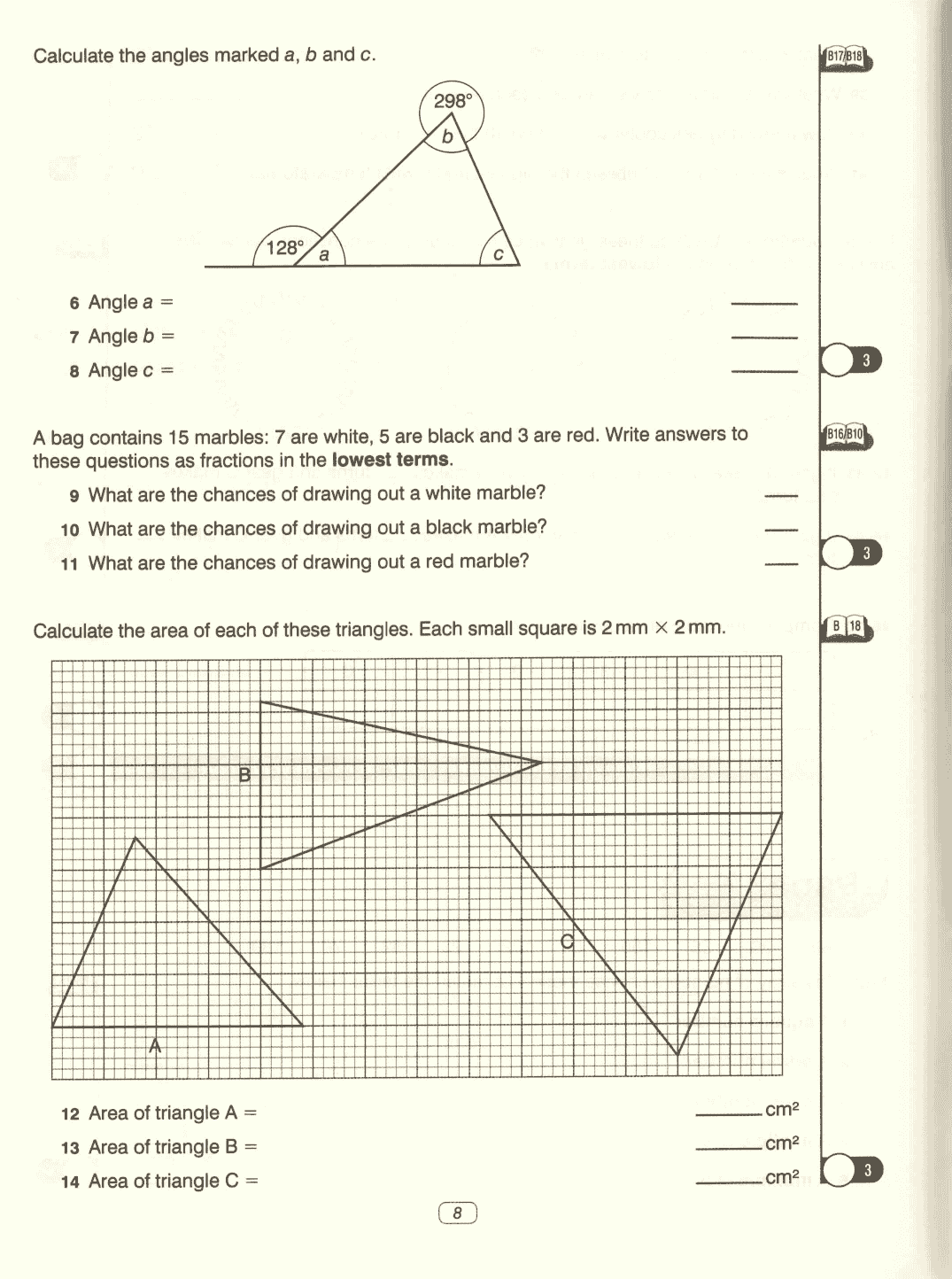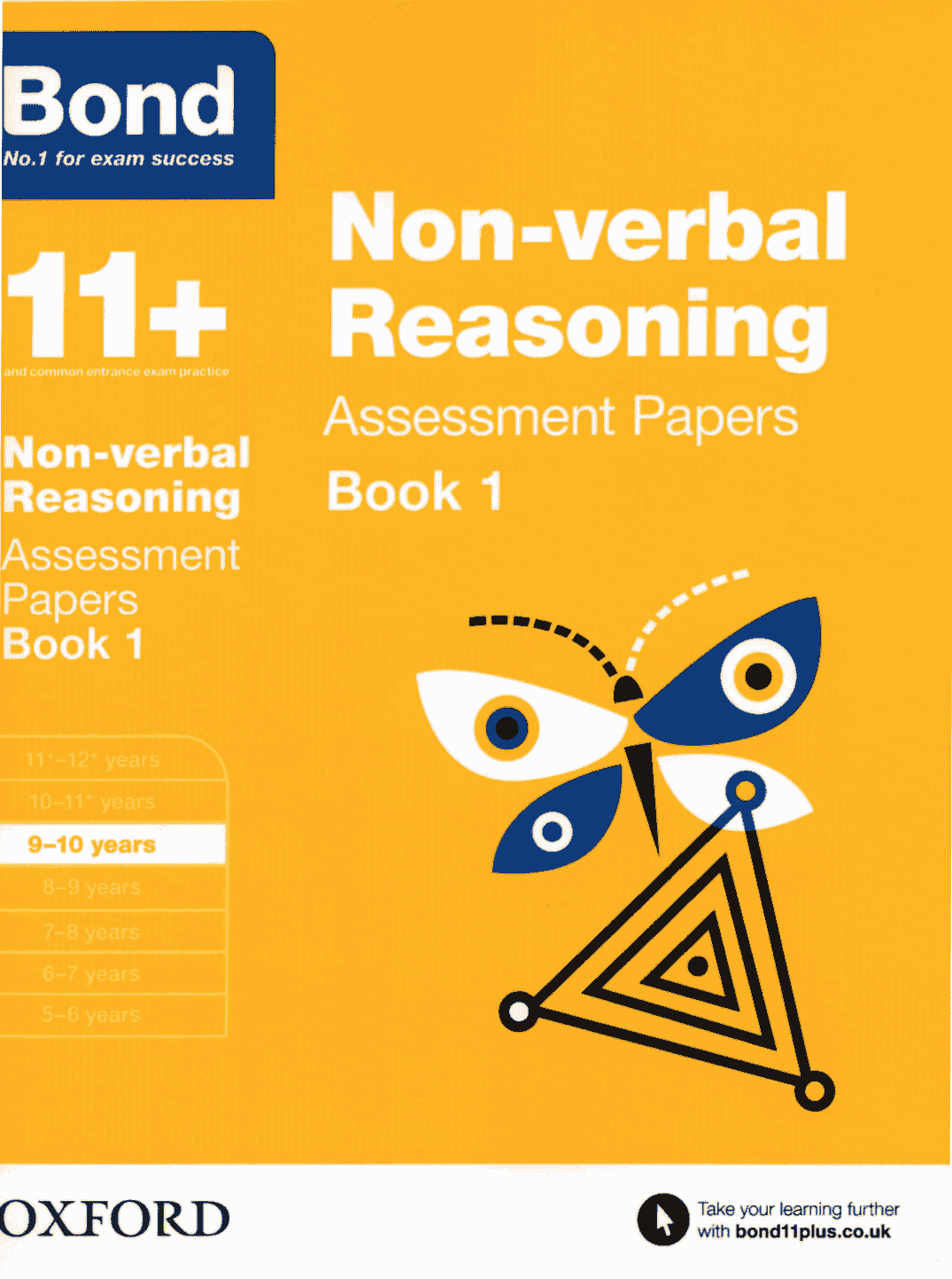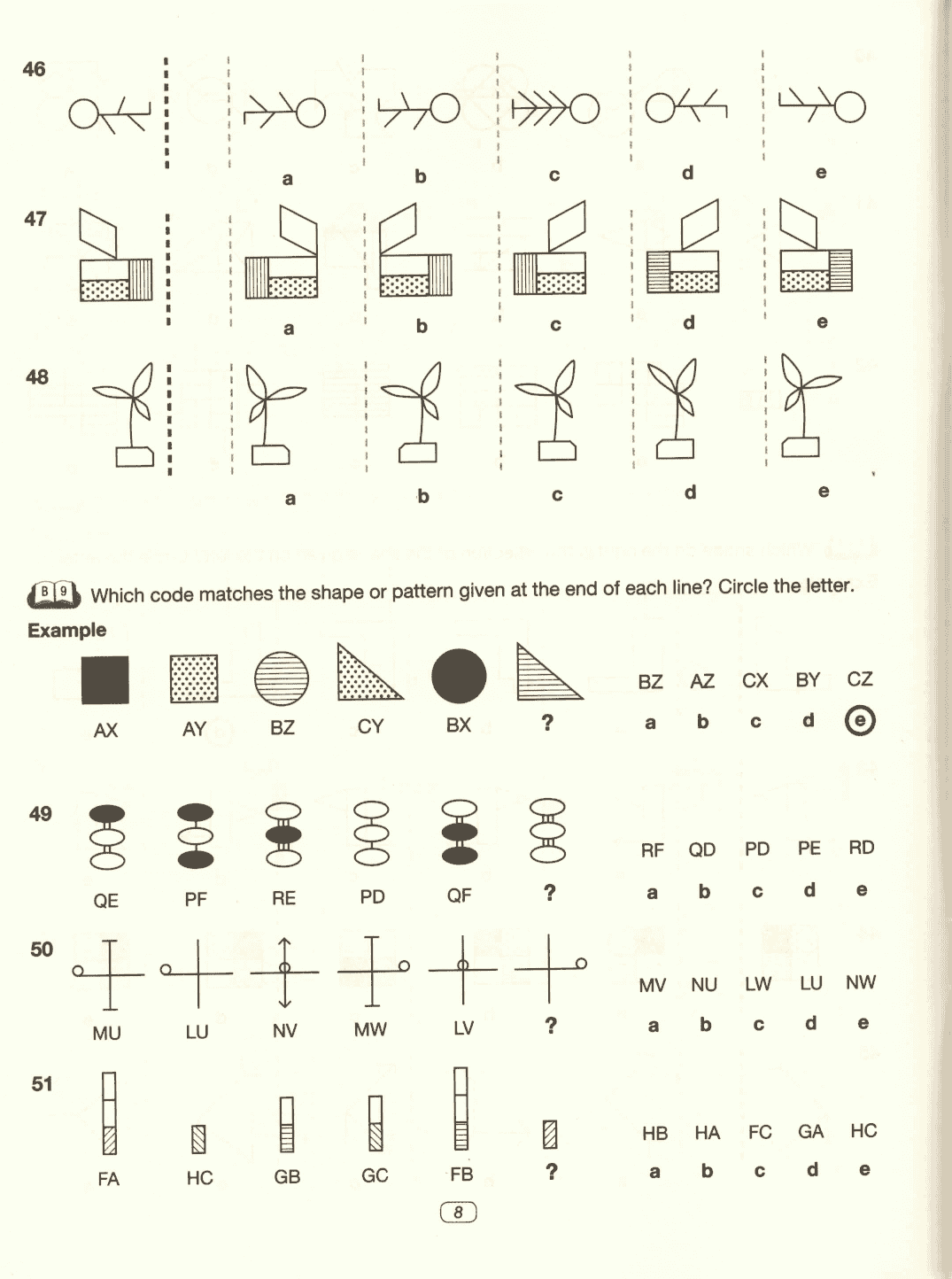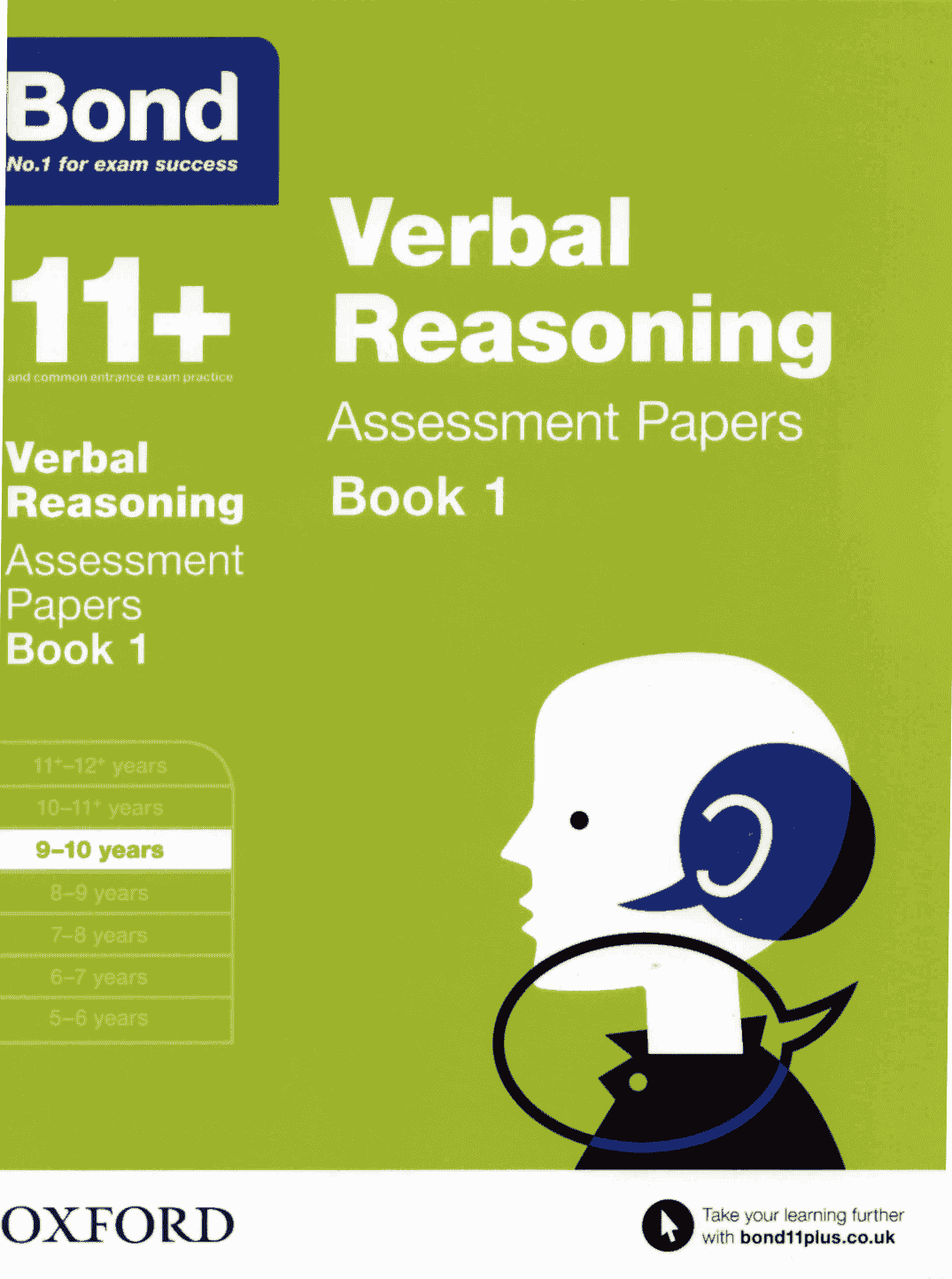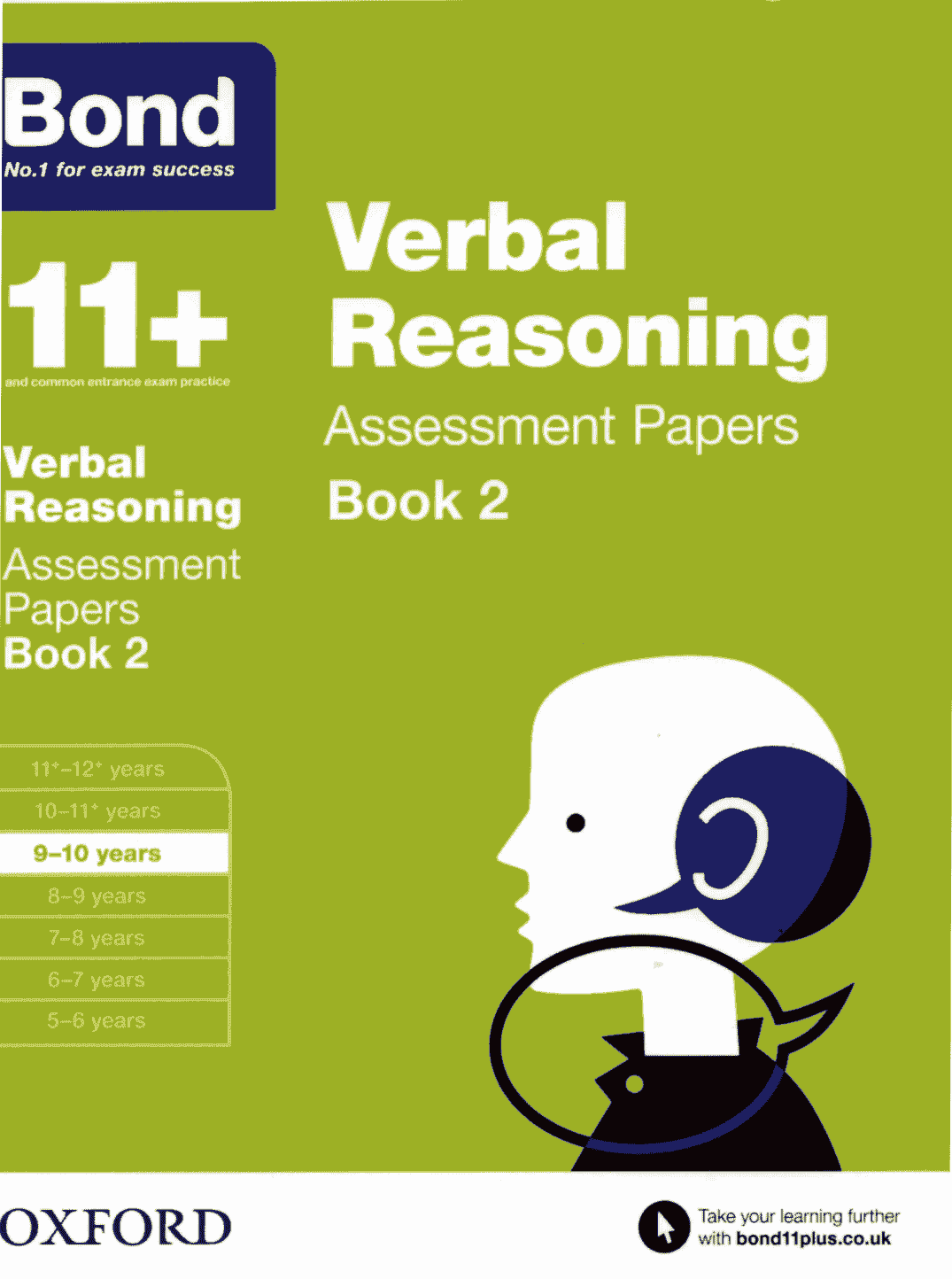Bond 11+ 是由 牛津大学出版社(Oxford University Press)出版的一套备考教材,专为 5-13 岁 的学生设计,帮助他们准备 11+、Common Entrance 考试 以及 Key Stage 2 SATs。
课程特点:
- 全面覆盖考试内容:包括 英语、数学、语言推理(Verbal Reasoning)和非语言推理(Non-verbal Reasoning)。
- 适用于 GL Assessment 和 CEM 11+ 考试:针对不同考试体系提供重点支持。
- 深受家长、导师和预科学校信赖:已有超过 50 年 的历史,帮助无数学生通过考试。
- 个性化学习路径:Bond Online Premium 和 Bond Online Premium Plus 提供 AI 驱动的个性化学习方案。
课程结构:
- 分为 8 个等级,适用于不同年龄段的学生。
- 包含 42 本书,涵盖 考试技能、逻辑推理、数学运算、阅读理解 等多个方面。
- 螺旋式学习:知识点随着课程进度不断复习和扩展,确保学生扎实掌握。
适用人群:
- 希望进入英国精英私立学校或公立文法学校的学生。
- 需要提升逻辑推理能力、数学思维和英语技能的学习者。
- 家长和导师希望为孩子提供系统化备考支持。
这套教材不仅帮助学生掌握考试技巧,还培养他们的 批判性思维、问题解决能力和自信心。
关于 11+
什么是 11+ 考试?
11+ 考试是中学的选择性入学考试。直到 20 世纪 70 年代初,所有学生都参加 11+ 考试,当时,公立文法学校的招生从选择性转向非选择性综合学校。
11+ 考试不再是强制性考试,但在设有文法学校的地区以及选择性私立学校,它仍然被用来评估学生的学术能力和潜力。考试在小学五年级末或六年级初进行。
11+ 考试的内容在全国不同地区有所不同,但通常侧重于以下四个科目:
英语
数学
语言推理
非语言推理/空间意识
语言和非语言推理/空间意识测试并非学校科目,也不会作为公立学校课程的一部分进行教授。因此,您的孩子可能需要额外的支持和备考练习,以熟悉语言和非语言推理/空间意识考试的题型。
11+ 考试试卷有两种不同的格式:
标准格式——孩子们将答案写在试卷上
多项选择题格式——答案在单独的答题册上标记
11+ 考试时长是多少?
11+ 考试有计时要求,通常持续 45-60 分钟。孩子们应该使用计时的 11+ 考试模拟试卷进行练习,同时也要进行不计时的练习,这样他们才能了解自己在规定时间内能够做到什么。
11+ 与其他学校考试有何不同?
11+ 考试是英格兰中学选拔程序的一部分,这些学校根据学生的学术能力进行选拔,包括公立文法学校和精英私立学校。这项考试是可选的(学生可选择参加),在六年级开始时举行。英国主要考试委员会是英国独立学校评估委员会(GLAssessment),但一些学校会自行设置考试,或将考试内容与外部考试委员会的特定试卷混合使用。
11+考试测试英语和数学技能,通常还包括语言推理和/或非语言推理测试。考试的具体内容可能因地方当局和各个学校而异。
相比之下,SAT等国家考试涵盖核心英语和数学技能,这些考试是标准化的,与国家课程保持一致,是政府教育框架的一部分。所有公立小学的学生都必须在六年级末参加这些考试。
普通入学考试由独立学校考试委员会(ISEB)设置,许多独立(私立)学校都采用该考试。该考试在八年级举行,通常被称为“13+”。它涵盖了与 11+ 考试相同的大部分核心技能,但也包含学校选择的其他科目,例如科学或现代语言和古典语言。
精英私立学校也可能提供 7+ 和 8+ 的入学考试。通用预测试 (Common Pre-Test) 是由 ISEB 为 6 年级(11+)学生提供的在线考试,涵盖与标准 11+ 考试相同的四个科目。
GL 评估机构也为 11+ 考试提供自适应入学考试 (Adaptive Admissions Test),该考试相当于 ISEB 为私立学校提供的通用预测试,也是 GL 提供的唯一一项纯在线考试,涵盖与标准 11+ 考试相同的四个核心科目:英语、数学、语言推理和非语言推理。
我在哪里可以找到有关 11+ 考试的信息?
由于没有公开的课程,而且许多学校不愿公布考试内容,11+ 考试笼罩着一层神秘的氛围。不同地方政府和高中会设置不同的考试组合,因此很难选择满足每个孩子需求的11+资源。
您可以在本网站找到有关11+和其他精英入学考试的最新指南。您也可以在您心仪学校的网站上了解更多招生信息。
邦德学校提供完整灵活的备考材料计划,您可以根据孩子的具体需求,根据他们即将参加的考试要求进行调整。
《11+家长指南》提供了一本必不可少且极具价值的手册,以清晰、实用、循序渐进的方式指导您完成整个11+考试流程。
为什么查找有关11+的信息如此困难?
自20世纪70年代以来,政治上已经从精英学校流程转向公立学校综合系统。因此,使用11+选拔系统的学校和地方政府越来越少。 11+考试旨在测试学生的先天学术能力,因此中学希望确保竞争环境尽可能公平。学校除了提供有关其所用考试的基本信息外,没有其他义务提供任何其他信息。在邦德,我们致力于为学生提供练习和准备的机会,让他们有机会应对可能是他们第一次参加的考试。
增强他们的自信心,帮助他们脱颖而出,展现自身能力。
有哪些不同的 11+ 考试委员会?它们之间有什么区别?
11+ 考试高度地区化:11+ 考试涵盖的科目以及您的孩子将如何参加考试取决于您居住的地区。
GL 评估——前身为 NFER,GL 评估在英国大多数文法学校开发和管理 11+ 考试。
也有一些地区特定的考试版本。例如,肯特郡的文法学校使用 GL 考试的变体,称为肯特测试。该测试由一份包含英语和数学问题的多项选择题试卷、一份文字推理和非文字推理/空间意识试卷以及一项 40 分钟的写作测试组成。最后一项考试仅在边缘考生或提出申诉时才会评分。肯特郡的一些学校设有额外的测试,可以代替肯特测试或作为其补充。
由于您的孩子在不同的11+考试地点参加考试,考试内容可能会有很大差异,因此务必咨询当地政府和当地的文法学校,以便确切了解您孩子在11+考试中将涉及哪些科目和技能。有些学校是联盟的成员,其申请系统可能与当地政府规定的有所不同。因此,务必直接咨询学校。此外,学校不一定会使用考试委员会提供的所有试卷:他们可能只测试几个主题,而不是全部四个主题。
核对清单——要了解您所在地区的11+考试结构,请与您选择的学校核对以下详细信息:
11+考试何时举行?
考查哪些科目?
11+试卷有多少道题?
考试采用什么形式?
由谁提供考试?
目前,以下地区使用考试委员会:
GL 评估:坎布里亚郡、兰开夏郡、特拉福德郡、北约克郡、西约克郡、林肯郡、什罗普郡、西米德兰兹郡、沃里克郡、格洛斯特郡、威尔特郡、多塞特郡、白金汉郡、赫特福德郡、肯特郡。
GL 评估和学校自测:伦敦。
GL 和未来故事社区企业:伯克郡、德文郡。
GL、学校自测和未来故事社区企业:埃塞克斯郡。
注意:此信息在发布时准确无误,但学校会更换考试委员会,因此请务必与您申请的每所学校确认。
涵盖哪些科目?
GL 是最常见的考试委员会,通常涵盖英语、数学、语言推理和非语言推理/空间意识(学校可以根据自身选拔政策选择任意组合)。
考试内容包括哪些技能?
您的孩子需要在以下领域具备扎实的技能:
词汇、逻辑、数学和拼写
使用大量的往年真题和练习试卷,帮助您的孩子熟悉每门科目的题型。时间管理技能至关重要:
确保您的孩子进行大量的限时练习,并养成合理安排时间的习惯。
使用练习试卷在考试环境下进行模拟测试,帮助他们适应正式的考试环境——适应考试环境将有助于您的孩子在真正的考试中减少恐惧感。
有关 11+ 考试及其备考方法的更多信息,请参阅我们的“指导”部分。
Bond 11+ is a comprehensive series of exam preparation materials published by Oxford University Press, designed for students aged 5-13. It helps them prepare for 11+ exams, Common Entrance exams, and Key Stage 2 SATs.
Course Features:
- Comprehensive Coverage: Includes English, Mathematics, Verbal Reasoning, and Non-verbal Reasoning.
- Suitable for GL Assessment and CEM 11+ Exams: Supports different examination formats with targeted practice.
- Trusted by Parents, Tutors, and Prep Schools: Over 50 years of expertise in helping students succeed.
- Personalized Learning Paths: AI-powered study plans available through Bond Online Premium and Bond Online Premium Plus.
Course Structure:
- Eight Levels, tailored to different age groups and skill levels.
- 42 Books, covering exam skills, logical reasoning, mathematical operations, and reading comprehension.
- Spiral Learning Approach: Concepts are revisited and expanded upon to ensure thorough mastery.
Ideal For:
- Students aiming for elite UK private or grammar schools.
- Learners who want to improve logical reasoning, math, and English skills.
- Parents and tutors looking for structured exam preparation support.
This series not only equips students with essential exam techniques but also enhances critical thinking, problem-solving skills, and confidence.
About the 11+
What is the 11+ exam?
The 11+ is a selective entrance examination for secondary school. All children took the 11 plus exam until the early 1970s, when there was a move away from selective state-funded grammar schools towards non-selective comprehensive schools.
The 11+ exam is no longer a compulsory test, however it continues to be used in those areas with grammar schools, and also by selective independent schools, to identify academic ability and potential. It is taken towards the end of Year 5 or beginning of Year 6 of primary school.
The content of the 11+ exam varies between different areas of the country but generally it will focus on a combination of the following four subjects:
English
Maths
Verbal reasoning
Non-verbal reasoning/spatial awareness
Verbal and non-verbal reasoning/spatial awareness tests are not school-based subjects and will not be taught as part of the curriculum in state schools. Therefore, your child is likely to need additional support and exam preparation practice to familiarise themselves with verbal and non-verbal reasoning/spatial awareness exam question types.
There are two different formats for 11+ exam papers:
Standard format – where children write their answers on the test paper
Multiple-choice format – where answers are marked in a separate answer booklet
How long is the 11+ exam?
11+ exam papers are timed and usually last between 45-60 minutes. Children should practise with timed 11+ exam mock test papers, as well as working through non-timed practice, so they can see what they are able to do within a given time frame.
How is the 11+ different to other school exams?
The 11+ exam is part of the secondary school selection process for schools in England that select by academic ability – including state-funded grammar schools and selective independent schools. The exam is optional (it’s taken by choice) and is held at the start of Year 6. There is one main exam board, GL Assessment, although some schools set their own test or mix and match their own test with particular papers taken from external exam boards.
The 11+ tests English and maths skills and usually includes verbal reasoning and/or non-verbal reasoning tests as well. The exact make-up of the exam can vary between Local Authorities and between individual schools.
By contrast, national exams such as SATs cover core English and maths skills, are standardised and aligned to the National Curriculum, and are part of the government framework for education. They must be taken by all children in state-funded primary schools, towards the end of Year 6.
The Common Entrance exam is set by the Independent Schools Examination Board (ISEB) and used by many independent (private) schools. It is taken in Year 8 and often referred to as ‘the 13+’. It covers most of the same core skills as the 11+ but will also include other subjects chosen by the school, such as science or modern and classical languages.
Selective independent schools might also offer entrance exams at 7+ and 8+. The Common Pre-Test is an online-format test offered by the ISEB for children in Year 6 (11+) and covers the same four subject areas as the standard 11+.
GL Assessment also offer the Adaptive Admissions Test at 11+, which is there equivalent of ISEB’s Common Pre-test for independent schools, is the only exclusively online test offered by GL and covers the same four core subjects of English, maths, verbal reasoning, and non-verbal reasoning.
Where can I find out about the 11 Plus exams?
With no published curriculum, and with many schools preferring not to publish the content of their exams, the 11+ can have an air of mystery about it. Different Local Authorities and senior schools set different combinations of tests, making it hard to choose 11+ resources to meet every child’s needs.
On this website you will find up-to-date guidance on the 11+ and other selective entrance exams. You can find out further admissions information on the website of your preferred school.
Bond offers a complete, flexible programme of preparation materials that you can adapt to your child’s specific needs, tailoring it to the requirements of the exam or exams they are approaching.
The Parents’ Guide to the 11+ provides an essential and invaluable manual that takes you through the whole 11+ process in a clear, practical, step-by-step manner.
Why is it so hard to find out information about the 11+?
Since the 1970s there has been a political move away from selective school processes to state school comprehensive systems. For this reason, fewer schools and Local Authorities are using the 11+ selection system. The 11+ is intended to test innate academic ability and therefore secondary schools want to ensure the playing field is as level as possible. Schools are not obliged to provide anything other than basic information about the test they use. At Bond, we believe in giving pupils the opportunity to practise and prepare for what may be the first exam they enc
ounter, bolstering their confidence to help them shine and demonstrate their ability.
What are the different 11+ exam boards and what is the difference between them?
The 11+ exam is highly regionalised: the subjects covered in the 11+ papers and how your child will be tested will depend on where you live.
GL Assessment – previously known as NFER, GL Assessment develop and administer 11+ exams in the majority of grammar schools in the UK.
There are also regionally-specific variations. For example, the Kent grammar schools use a variation of the GL exam known as the Kent Test. This is made up of a multiple-choice paper of English and maths questions, a paper of verbal reasoning and non-verbal reasoning/spatial awareness, and a 40-minute writing test. This last exam is only marked when looking at borderline candidates or appeals. Some schools in Kent have additional tests which can either be taken in place of the Kent Test or as a supplement to it.
As there can be significant differences between the exams depending on where your child is taking the 11+, it is extremely important to check with your Local Authority and local grammar schools so that you know exactly what subjects and skills your child will be tested on as part of their 11+ exam. Some schools are part of consortiums, and their application system may differ from that outlined by the Local Authority. Therefore, it is important to check with the schools directly. Additionally, schools don’t necessarily use all the papers provided by an exam board: they may choose to just test on a couple of topics as opposed to all four.
Checklist – to find out how the 11+ exam is structured in your area, check the following details with your chosen school:
When is the 11+ exam?
Which subjects are tested?
How many questions will there be in the 11+ paper?
What format does the exam take?
Who provides the exam?
Currently exam boards are used in the following regions:
GL ASSESSMENT: Cumbria, Lancashire, Trafford, North Yorkshire, West Yorkshire, Lincolnshire, Shropshire, West Midlands, Warwickshire, Gloucestershire, Wiltshire, Dorset, Buckinghamshire, Hertfordshire, Kent.
GL ASSESSMENT AND SCHOOL’S OWN TEST: London
GL AND FUTURE STORIES COMMUNITY ENTERPRISE: Berkshire, Devon.
GL, SCHOOL’S OWN TEST, AND FUTURE STORIES COMMUNITY ENTERPRISE: Essex.
N.B. Please note, this information was correct at time of publication, but schools do change exam board so it is essential that you check with each school to which you are applying.
Which subjects are covered?
GL, which is the most common exam board, tends to cover English, maths, verbal reasoning, and non-verbal reasoning/spatial awareness (schools can choose any combination of these to best suit their selection policy).
Which skills will be tested?
Your child will require strong skills in the following areas:
vocabulary, logic, maths, and spelling
Use plenty of past and practice papers to familiarise your child with the question types in each subject. Time management skills are of great importance:
Make sure your child does plenty of timed practice and is accustomed to managing their time carefully.
Use practice test papers to set mock tests under exam conditions to help them get used to formal exam conditions – getting used to working in test conditions will help your child feel less intimidated by the real exam.
For more information about the 11+ exams and how to prepare for them, please see our Guidance section.

